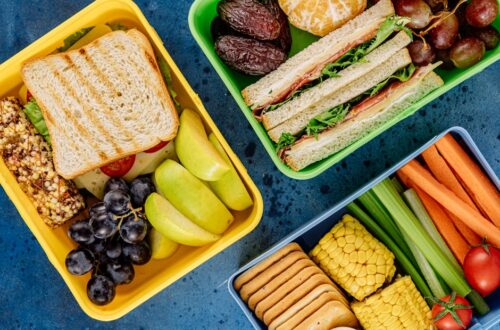Table of Contents
- Introduction to Healthy Eating
- Understanding Nutritional Balance
- Grocery List for the Week
- Fresh Produce
- Proteins
- Whole Grains
- Pantry Staples
- Day 1: Energizing Breakfast, Lunch, and Dinner
- Day 2: Clean Eating Focus
- Day 3: Plant-Powered Recipes
- Day 4: Meals for Active Lifestyles
- Day 5: Comfort Food with a Healthy Twist
- Day 6: Global Flavors – A Culinary Adventure
- Day 7: Detox and Nourishment
Introduction to Healthy Eating
Healthy eating is a vital component of overall wellness, playing a critical role in sustaining energy levels and promoting mental health. The concept encompasses a balanced diet rich in various nutrients, essential for maintaining optimal bodily function. Consuming energy boosting foods not only fuels daily activities but also enhances cognitive performance, leading to improved productivity and emotional well-being. A diet that incorporates a wide array of wholesome ingredients significantly contributes to the prevention of chronic diseases such as obesity, diabetes, and heart disease.
One of the foundational principles of healthy eating is balance. A balanced diet should include a mix of carbohydrates, proteins, healthy fats, vitamins, and minerals. This diversity ensures that the body receives all necessary nutrients, aiding in effective metabolism and energy production. Moreover, energy boosting foods, such as whole grains, lean meats, fruits, and vegetables, provide the essential vitamins and minerals necessary for sustaining energy levels throughout the day.
Meal planning is a practical strategy that can greatly enhance one’s ability to maintain a healthy diet. By engaging in weekly meal planning, individuals can streamline their grocery shopping and ensure that they have access to nutritious meals at all times. This approach not only saves time but also mitigates impulsive food decisions that often result in consuming unhealthy options. By preparing healthier meals in advance, individuals can confidently choose balanced dishes that align with their dietary goals.
Incorporating meal planning into daily routines supports the consistent consumption of nourishing foods while fostering healthier eating habits. When healthy foods are readily available and easy to prepare, individuals are more likely to make better choices, contributing to long-term health and wellness. By committing to nutritious meal preparation, one can cultivate a lifestyle characterized by vibrancy, energy, and ease of mind.





